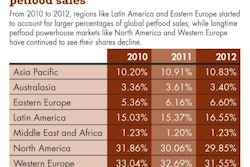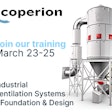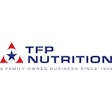
When I ask our partners in the petfood industry what’s keeping them up at night, the potential for recalls and the Food Safety Modernization Act are frequently on their lists of insomnia inducers. Companies currently in a growth mode are especially vulnerable to the headaches and expenses these issues can impose.
Even recalls due to circumstances beyond a company’s control, or stemming from a problem initiated by a vendor, are unwelcome. A recall can damage valuable assets such as brand image and integrity, both of which are only earned after years of hard work, and of course the petfood industry is no stranger to recalls. Not only can brand image be damaged, the financial consequences can be devastating. Whether you transport the product back to your facility or have it destroyed, multiple complicated logistical elements need to fall in place.
Those companies emerging from startup stage, now in full growth mode, are most likely to be frustrated about the logistical nightmare a current-day recall can impose. Many entrepreneurs-turned-executives spend significant portions of their time managing sales and customer relationships. They are often surprised by the amount of management-level attention a complicated logistics system presents. Often there are simply not enough associates skilled in the nuances and challenges that are sure to come with complex orders.
The key here is to have the systems capability, at least to the pallet level, to know to whom and when product was shipped according to manufacturing or lot code. Many companies aren't equipped to manage sophisticated systems that track shipments and comply with complex shipping requirements from retailers and regulators.
Outsourcing those logistics skills can be a solution. The challenge, of course, comes with the need to manage expenses, as well as the common concern that no one from the outside could possibly manage any part of your business without the benefit of years of accumulating intellectual property and developing systems. Unfortunately, the decision to look outside often comes only after serious problems have surfaced.
There are many specialists in the logistics business. You can find experts in:
- Warehousing
- Motor carriers
- Freight brokerage
- Contract packaging
- Fulfillment
Finding the right partner can be the key factor to success. Just as in a personal relationship, you want to match culture as closely as possible. If you sell your products through multiple sales channels, find a firm with that experience and expertise. Matching size also makes sense. Often you’ll want a partner that has the bandwidth to get the job done and is also flexible enough to offer solutions that accelerate, rather than hinder, speed to market. If your vendor needs six months to get the machine up and rolling and get you into suitable warehouse space in a new market, take that into consideration in making your decision.
Any good relationship thrives on commitment. Make sure your business is important enough to your partner that they are going to be as committed as you are to your company’s success. Everyone will promise you that commitment, but look for a culture that is focused on continued improvement and driving cost reduction, not just fitting your square peg into their round hole. When they say they offer unique solutions to your issues, make sure they really mean it and aren’t soon insisting on your complete conformation into “their way.”
If you are going to take advantage of outsourcing, now is the time to commit to collaboration. While you don’t want to be forced into a pre-determined solution, you do want to maximize the expertise you are hiring and be willing to listen to your partner’s strategic advice.
Find a partner that will demonstrate their ability to think strategically. Yes, they must be able to execute tactically and move and track a product from your facility to the end consumer, but the true value and solution to potential long-term savings comes from experience accumulated over years of encountering similar situations. Aggregating that experience and developing solutions that fit an individual company’s needs, timing and resources can be priceless.


















